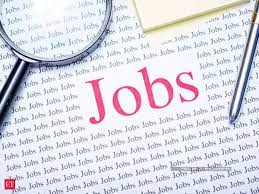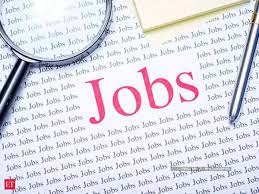
Despite the interruption created by the Omicron variant of coronavirus, hiring in the United States was solid last month.
According to the Labor Department, employers gained 467,000 jobs. That was a lot better than the experts had projected.
The unemployment rate increased slightly from 3.9 per cent to 4% in December, although this was attributable to more people looking for jobs.
The strong job creation, according to analysts, is likely to add to the pressure on the US central bank to hike interest rates next month.
The monthly survey also raised its hiring forecasts for December, adding to those who believe the economy will continue robust even as officials remove stimulus programs put in place at the outbreak's inception in 2020.
"This is a big positive surprise," said Brian Coulton, chief economist at Fitch Ratings. "It confirms that each successive wave of the virus is having a smaller and smaller impact on activity and labor demand."
Jerome Powell, the chairman of the Federal Reserve, has stated that the bank is considering raising interest rates next month, which would be the first increase since 2018. The measure is designed to help slow price rises by reducing demand by raising borrowing costs.
Inflation is rising at its quickest rate in over 40 years, putting pressure on the central bank to keep it under control. The Bank of England has hiked interest rates twice in the last three months in the United Kingdom.
President Joe Biden, whose favor ratings have dipped as a result of widespread fears about inflation, acknowledged the cost-of-living constraints in remarks lauding the employment data.
He stated that his administration was striving to address the concerns, including promoting investment in areas such as microchips that were experiencing shortages.
He also urged Congress to move forward with his administration's blocked budget measures, which he claimed would bring relief to families through programs including subsidized childcare.
"We're still going to work on gas prices, we're still going to work on food prices," he said. "In the meantime, there's a lot we can do to give these families a little extra breathing room."
Businesses in the United States have experienced widespread pressures as a result of rising material costs and wages, which analysts believe was fueled in part by the wave of government assistance that followed the pandemic.
According to the most recent jobs report, the average hourly salary has climbed by 5.7 per cent in the last year, a significant increase over the meager growth witnessed in recent years. The increase, however, does not keep up with the economy's rapid price increases.
Nonetheless, there are signs that the salary raises are luring individuals back into labor. For the first time since the epidemic, the percentage of persons working or searching for jobs exceeded 62 per cent last month.
Women's engagement has increased in recent months, owing to the reopening of schools and nurseries.
In January, restaurants, and bars aided in the recruiting process in the United States. Retailers, warehouses, and transportation companies all hired more people.
However, the report revealed that Omicron had an impact. Approximately six million people stated they were unable to work or had their hours reduced as a result of the epidemic, nearly double the number from the previous month.
(Source:www.bbc.com)
According to the Labor Department, employers gained 467,000 jobs. That was a lot better than the experts had projected.
The unemployment rate increased slightly from 3.9 per cent to 4% in December, although this was attributable to more people looking for jobs.
The strong job creation, according to analysts, is likely to add to the pressure on the US central bank to hike interest rates next month.
The monthly survey also raised its hiring forecasts for December, adding to those who believe the economy will continue robust even as officials remove stimulus programs put in place at the outbreak's inception in 2020.
"This is a big positive surprise," said Brian Coulton, chief economist at Fitch Ratings. "It confirms that each successive wave of the virus is having a smaller and smaller impact on activity and labor demand."
Jerome Powell, the chairman of the Federal Reserve, has stated that the bank is considering raising interest rates next month, which would be the first increase since 2018. The measure is designed to help slow price rises by reducing demand by raising borrowing costs.
Inflation is rising at its quickest rate in over 40 years, putting pressure on the central bank to keep it under control. The Bank of England has hiked interest rates twice in the last three months in the United Kingdom.
President Joe Biden, whose favor ratings have dipped as a result of widespread fears about inflation, acknowledged the cost-of-living constraints in remarks lauding the employment data.
He stated that his administration was striving to address the concerns, including promoting investment in areas such as microchips that were experiencing shortages.
He also urged Congress to move forward with his administration's blocked budget measures, which he claimed would bring relief to families through programs including subsidized childcare.
"We're still going to work on gas prices, we're still going to work on food prices," he said. "In the meantime, there's a lot we can do to give these families a little extra breathing room."
Businesses in the United States have experienced widespread pressures as a result of rising material costs and wages, which analysts believe was fueled in part by the wave of government assistance that followed the pandemic.
According to the most recent jobs report, the average hourly salary has climbed by 5.7 per cent in the last year, a significant increase over the meager growth witnessed in recent years. The increase, however, does not keep up with the economy's rapid price increases.
Nonetheless, there are signs that the salary raises are luring individuals back into labor. For the first time since the epidemic, the percentage of persons working or searching for jobs exceeded 62 per cent last month.
Women's engagement has increased in recent months, owing to the reopening of schools and nurseries.
In January, restaurants, and bars aided in the recruiting process in the United States. Retailers, warehouses, and transportation companies all hired more people.
However, the report revealed that Omicron had an impact. Approximately six million people stated they were unable to work or had their hours reduced as a result of the epidemic, nearly double the number from the previous month.
(Source:www.bbc.com)





